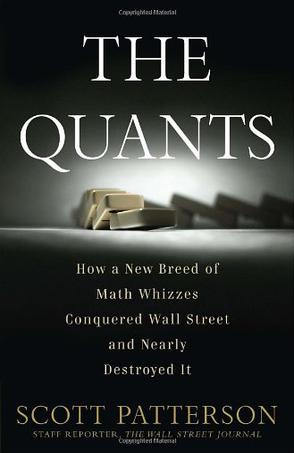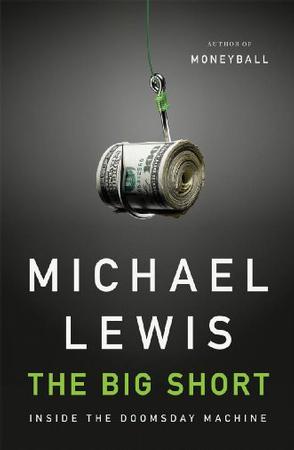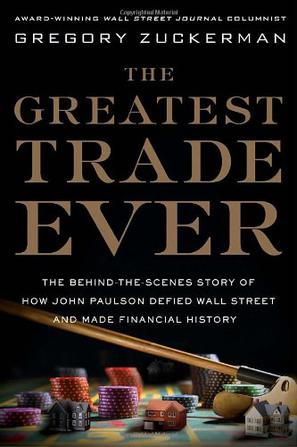-

贪婪、欺诈和无知
作为一位在美国抵押贷款业内干了14年的行家里手,作者亲身经历了这场席卷美国的危机发展的全过程——房屋滞售,价格跌落,信贷紧缩。而问题的真实情况似乎比这还要严重的多。这场危机给大众留下了太多的猜疑和揣测:它究竟是怎样发生的?未来会发展到何种程度?它给世界经济带来了怎样的影响? 作者通过一个业内人的视角,为我们揭开美国次贷行业的内幕,描绘了一个行业全景和其中形形色色的人物与故事,反映了交易背后的利益勾联,揭示了造成危机的原因和真相。本书试图从行业层面找出解决危机的方法,提出了不少建设性建议。值得一提的是,本书专辟章节,探讨了次贷危机对中国的影响,对中国的决策者、金融业内人士具有借鉴价值。 •什么说美国3/4的次级贷款是不稳定和具有欺诈性的? •次级贷款行业是如何将美国房价推到不可思议的高位的? •房地产经纪商是利用何种手段欺骗债权人和债务人的? •经纪商如何利用巧妙的金融技巧使不合格的贷款者如愿以偿地得到贷款? •为什么说华尔街与评级机构是推动次贷危机的主要原因? •解决危机需要综合考虑行业链条内的哪些环节? 导读 序 1 拐点 良好的贷款行为变质 目击崩溃 我们都在想些什么? 激流隐退 事态的发展 2 次级贷款业 次级贷款的“枪手”业务 了解次级贷款业 次级贷款业的发展 次贷业的经济学 1998年的第一次危机 参与者与业务流程 贷款公司与经纪商的关系 贷款公司与投资机构的关系 冲突的体系 自有文化 白手起家 3 经纪商:抵押融资的软肋 抵押贷款经纪业务 经纪商的业务流程 抵押贷款欺诈 经纪商的谋略 诚实的经纪商 行为失调 不道德的经纪商 我将自己置于何种境地? 对人性丧失信心 4 创新融资的艺术 理解风险 融资创新如何运作 房产评估中的水分 5 华尔街&评级机构:贪婪之至 证券化的影响 何谓抵押贷款支持证券 华尔街蹚浑水 评级机构 利润丰厚的商业模式 插上一手 难以调和的关系 评级机构的权势 谁在导演这场秀? 反应迟缓 证券化如何影响借款人 未来何去何从 6 合零为整 二级参与者——美联储 借款人 随意选择收入和首付款 抵押贷款零售商 建筑商和房地产中介 次贷业的命运流转 判断失误 7 重回正轨 变革计划 投资银行——创造责任 评级机构——彻底检修 抵押贷款经纪人——修补体系 解决欺诈问题——打破思维定式 评估师 贷款指导——很有意义的改变 让欺诈无所遁形 目前的危机 8 次贷对中国的影响 美国房地产市场的崩溃 对美国经济的影响 对中国经济的影响 次贷危机对中国的影响 中国抵押贷款业 美国次贷危机的教训 -

大空头
-

The Quants
“Beware of geeks bearing formulas.” --Warren Buffett In March of 2006, the world’s richest men sipped champagne in an opulent New York hotel. They were preparing to compete in a poker tournament with million-dollar stakes, but those numbers meant nothing to them. They were accustomed to risking billions. At the card table that night was Peter Muller, an eccentric, whip-smart whiz kid who’d studied theoretical mathematics at Princeton and now managed a fabulously successful hedge fund called PDT…when he wasn’t playing his keyboard for morning commuters on the New York subway. With him was Ken Griffin, who as an undergraduate trading convertible bonds out of his Harvard dorm room had outsmarted the Wall Street pros and made money in one of the worst bear markets of all time. Now he was the tough-as-nails head of Citadel Investment Group, one of the most powerful money machines on earth. There too were Cliff Asness, the sharp-tongued, mercurial founder of the hedge fund AQR, a man as famous for his computer-smashing rages as for his brilliance, and Boaz Weinstein, chess life-master and king of the credit default swap, who while juggling $30 billion worth of positions for Deutsche Bank found time for frequent visits to Las Vegas with the famed MIT card-counting team. On that night in 2006, these four men and their cohorts were the new kings of Wall Street. Muller, Griffin, Asness, and Weinstein were among the best and brightest of a new breed, the quants . Over the prior twenty years, this species of math whiz --technocrats who make billions not with gut calls or fundamental analysis but with formulas and high-speed computers-- had usurped the testosterone-fueled, kill-or-be-killed risk-takers who’d long been the alpha males the world’s largest casino. The quants believed that a dizzying, indecipherable-to-mere-mortals cocktail of differential calculus, quantum physics, and advanced geometry held the key to reaping riches from the financial markets. And they helped create a digitized money-trading machine that could shift billions around the globe with the click of a mouse. Few realized that night, though, that in creating this unprecedented machine, men like Muller, Griffin, Asness and Weinstein had sowed the seeds for history’s greatest financial disaster. Drawing on unprecedented access to these four number-crunching titans, The Quants tells the inside story of what they thought and felt in the days and weeks when they helplessly watched much of their net worth vaporize – and wondered just how their mind-bending formulas and genius-level IQ’s had led them so wrong, so fast. Had their years of success been dumb luck, fool’s gold, a good run that could come to an end on any given day? What if The Truth they sought -- the secret of the markets -- wasn’t knowable? Worse, what if there wasn’t any Truth? In The Quants , Scott Patterson tells the story not just of these men, but of Jim Simons, the reclusive founder of the most successful hedge fund in history; Aaron Brown, the quant who used his math skills to humiliate Wall Street’s old guard at their trademark game of Liar’s Poker, and years later found himself with a front-row seat to the rapid emergence of mortgage-backed securities; and gadflies and dissenters such as Paul Wilmott, Nassim Taleb, and Benoit Mandelbrot. With the immediacy of today’s NASDAQ close and the timeless power of a Greek tragedy, The Quants is at once a masterpiece of explanatory journalism, a gripping tale of ambition and hubris…and an ominous warning about Wall Street’s future. -

The Big Short
The #1 New York Times bestseller: a brilliant account—character-rich and darkly humorous—of how the U.S. economy was driven over the cliff. When the crash of the U. S. stock market became public knowledge in the fall of 2008, it was already old news. The real crash, the silent crash, had taken place over the previous year, in bizarre feeder markets where the sun doesn’t shine, and the SEC doesn’t dare, or bother, to tread: the bond and real estate derivative markets where geeks invent impenetrable securities to profit from the misery of lower- and middle-class Americans who can’t pay their debts. The smart people who understood what was or might be happening were paralyzed by hope and fear; in any case, they weren’t talking. The crucial question is this: Who understood the risk inherent in the assumption of ever-rising real estate prices, a risk compounded daily by the creation of those arcane, artificial securities loosely based on piles of doubtful mortgages? Michael Lewis turns the inquiry on its head to create a fresh, character-driven narrative brimming with indignation and dark humor, a fitting sequel to his #1 best-selling Liar’s Poker . Who got it right? he asks. Who saw the real estate market for the black hole it would become, and eventually made billions of dollars from that perception? And what qualities of character made those few persist when their peers and colleagues dismissed them as Chicken Littles? Out of this handful of unlikely—really unlikely—heroes, Lewis fashions a story as compelling and unusual as any of his earlier bestsellers, proving yet again that he is the finest and funniest chronicler of our times. -

The Greatest Trade Ever
In 2006, hedge fund manager John Paulson realized something few others suspected--that the housing market and the value of subprime mortgages were grossly inflated and headed for a major fall. Paulson's background was in mergers and acquisitions, however, and he knew little about real estate or how to wager against housing. He had spent a career as an also-ran on Wall Street. But Paulson was convinced this was his chance to make his mark. He just wasn't sure how to do it. Colleagues at investment banks scoffed at him and investors dismissed him. Even pros skeptical about housing shied away from the complicated derivative investments that Paulson was just learning about. But Paulson and a handful of renegade investors such as Jeffrey Greene and Michael Burry began to bet heavily against risky mortgages and precarious financial companies. Timing is everything, though. Initially, Paulson and the others lost tens of millions of dollars as real estate and stocks continued to soar. Rather than back down, however, Paulson redoubled his bets, putting his hedge fund and his reputation on the line. In the summer of 2007, the markets began to implode, bringing Paulson early profits, but also sparking efforts to rescue real estate and derail him. By year's end, though, John Paulson had pulled off the greatest trade in financial history, earning more than $15 billion for his firm--a figure that dwarfed George Soros's billion-dollar currency trade in 1992. Paulson made billions more in 2008 by transforming his gutsy move. Some of the underdog investors who attempted the daring trade also reaped fortunes. But others who got the timing wrong met devastating failure, discovering that being early and right wasn't nearly enough. Written by the prizewinning reporter who broke the story in The Wall Street Journal , The Greatest Trade Ever is a superbly written, fast-paced, behind-the-scenes narrative of how a contrarian foresaw an escalating financial crisis--that outwitted Chuck Prince, Stanley O'Neal, Richard Fuld, and Wall Street's titans--to make financial history.